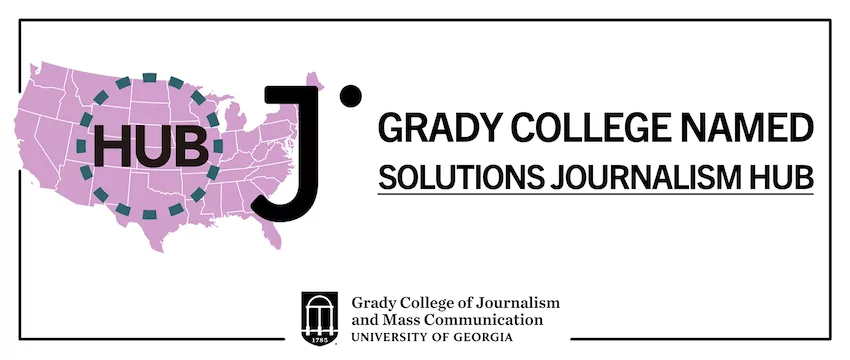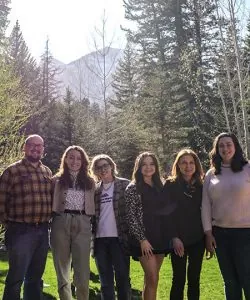Grady College named one of nation’s first 4 solutions journalism hubs

Grady College named one of nation’s first 4 solutions journalism hubs
The Solutions Journalism Network (SJN) has named Grady College of Journalism and Mass Communication at the University of Georgia one of the nation’s four inaugural solutions journalism hubs. In this role, Grady College’s Department of Journalism will continue to serve as an incubator for creativity, innovation and research in solutions journalism, which is focused on rigorously reporting on responses to social problems, and function as a resource for students and professionals in the field.
“Grady College joins the Solutions Journalism Network hopeful that we can work in partnership with the other wonderful schools selected to continue our longstanding work on building trust through journalism that aims to enlighten, inform, but also to point to ways that society can work toward viable outcomes,” said Charles Davis, dean of Grady College. “Our newsrooms stand ready to join in this important venture. How we do our work must help citizens solve society’s most pressing problems in a complex, diverse world.”

The College will also build on the solutions journalism training that all undergraduate journalism majors receive now, and expand this pedagogy within the curriculum, focusing on local news, broadcast and sustainability initiatives.
Since 2018, Grady students have been incorporating solutions journalism into their reporting. A “solutions journalism” section on Grady Newsource’s website includes over 100 stories. More than 30 of these pieces have been accepted and published by the Solutions Story Tracker, a worldwide database of rigorous reporting on responses to social problems.
Leveraging industry relationships through the Cox Institute for Journalism Innovation, Management & Leadership, Grady will partner with newsrooms throughout the Southeast to help cover issues unique to the region and create larger collaborations of best solutions journalism practices.
“It would be great if someone at a small newspaper in South Carolina emailed me and said we would love to do a partnership,” said Amanda Bright, director of the Cox Institute Journalism Innovation Lab. “That would be really helpful as we start to build our foundation to see what the needs are.” Bright can be reached at Amanda.Bright@uga.edu.
Lough explained that the College was primed to accept a designation like this, which is an achievement he, along with Bright and Journalism lecturer Ralitsa Vassileva, largely give credit to Grady leadership and, in particular, Janice Hume, the Carolyn McKenzie and Don E. Carter Chair for Excellence in Journalism and incoming associate dean of academic affairs, for supporting.
“We are always looking for how to teach better journalism, thinking about how we can continue to innovate while also keeping the basics foundations of storytelling,” Lough explained. “This designation is putting a name on what we are, essentially, already doing thanks to the support and encouragement from college leadership.”

In May, Vassileva and Lough took a group of students from the Department of Journalism to the SJN’s 2022 Solutions Journalism Summit in Sundance, Utah. And earlier this summer, The Oglethorpe Echo received a grant that will enable Grady students writing for the publication to report on solutions related to inequalities, including racial and ethnic disparities, political disenfranchisement and economic development, in the area.
“Our students at UGA are particularly mission-driven. They’re doing this journalism because they want to make a difference in communities,” said Bright. “I think that is also what unites the solutions journalism hubs and the faculty who are interested in this. That’s what will help us grow. It really feels like a breath of fresh air, a little bit of hope in a challenging space.”
The other three institutions named include Arizona State University’s Walter Cronkite School of Journalism and Mass Communication, Northwestern University’s Medill School of Journalism, Media, Integrated Marketing Communications, and Stony Brook University’s School of Communication and Journalism.
“These four journalism schools have an amazing wealth of talent and resources, and the Solutions Journalism Network is excited to partner with them to help further the spread of solutions journalism. These new hub universities are showing a serious commitment to leading this important work in their regions and nationally, as well as collaborating with their peer institutions to undertake this mission,” said Francine Huff, SJN’s director of journalism school partnerships.